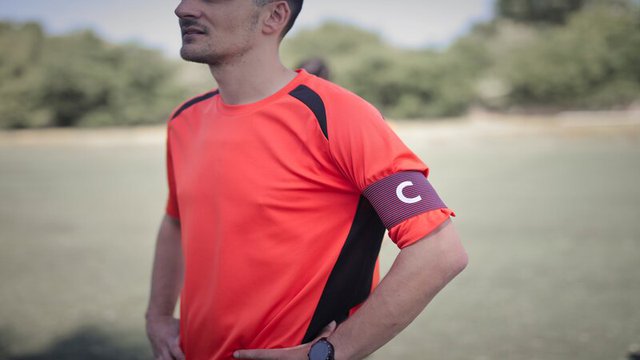

Today, leadership in sports is dynamic and charismatic, and can play a fundamental role in a team’s success. Think of some of the most successful coaches or captains in recent years: Zinedine Zidane, Sergio Ramos, or Pablo Laso.
Leadership is the art of guiding, in an organised manner, a diverse group to achieve a common goal. It can be both emotional and rational. A good leader always knows the strengths and weaknesses of his team as well as being attentive to threats and opportunities. Therefore, the role of the leader in sports is fundamental.
In this post, we'll look at some of the different types of leaders in sport and the characteristics they need to be successful. And if you want to be a leader in the sports sector as well, you should think about studying the Global Sport Management Degree, the MBA in Sports Management, or the MBA Sports Management Online at Real Madrid Graduate School - Universidad Europea.
If you look closely at the people who lead teams in sports, you will find examples of various leadership styles. Coaches or captains need to have a variety of skills. However, these leadership styles can be separated into three main categories: autocratic leaders, democratic leaders, and laissez-faire leaders. Now, we will look at each profile in more depth:
Autocratic leaders believe in all-powerful and absolute decision-making. In fact, this leadership style controls all kinds of decisions and seldom receives input from other group members. They always try to accomplish things instantly but efficiently. They believe in centralisation and don't think that way about the consultation process and make their own authoritarian policies.
They are focused on winning and often display a tough attitude during training or doing other tasks such as press conferences. Although the autocratic leader breeds aloofness, apathy, and sometimes hostility among his group, he could be effective with a group of older players. This is because they have the experience and maturity to understand why strict instructions are issued regarding certain situations.
Unlike the autocratic leadership style, democratic leaders believe in delegating authority and involving others in the decision-making process. They always share their ideas and policies with others while making decisions.
They have good interpersonal skills and therefore develop good relationships with other colleagues within the organisation and with their team or players. They leave their players to take responsibility with confidence. In much research on leadership and sport, it has been observed that this type of leadership has worked for individual sports such as table tennis, tennis, or boxing.
In addition, young athletes also like this style, and it also suits them well. This helps develop a sense of responsibility and control at an early stage. Furthermore, the democratic style is also suitable when the groups are smaller and there are no time constraints.
Also known as laissez-faire leadership, this style is the opposite of the autocratic leadership style because the laissez-faire leader makes few decisions and gives his players freedom to use their abilities independently. The coach usually intervenes only when a player requests help. Although this type of leadership leaves the team free, something that can help them take responsibility, it is not recommended for the long term. In addition to the coach not taking advantage of the potential of the players, he can create a negative environment.
No matter what the leadership style, there are certain key characteristics that a sports manager or captain must have. This can be applied to the game, during a match, or in a business setting, such as running a large sports organisation or facility. Here are some of the skills a leader must have:
At the Real Madrid Graduate School - Universidad Europea, we offer you a broad portfolio of programs to acquire the skills and knowledge necessary to have a successful professional career as a leader in the sports sector. In both formats - face-to-face and online - you will have access to a first-class faculty, many of them professionals working within different departments at Real Madrid and other large companies in the sector.
During the program you choose, you will have the opportunity to participate in exclusive events such as White Week, a week organised by the club and the university in which executives, leaders and athletes give talks and masterclasses on their areas of knowledge.